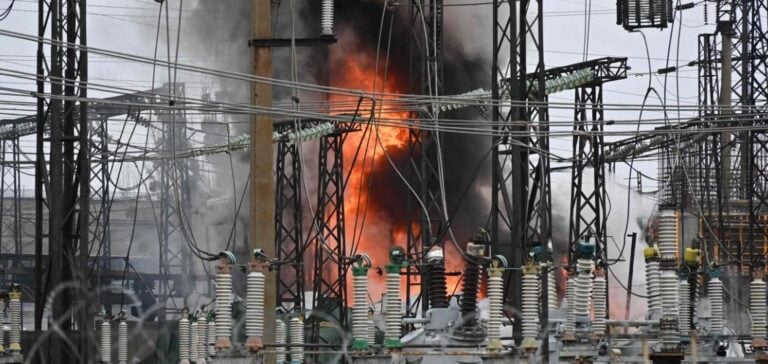Ukraine’s energy infrastructure is under systematic attack from Russia, exacerbating the country’s energy crisis. Since the start of the offensive on the Kharkiv region in May, Russian missiles have been raining down on these strategic installations, causing massive destruction. These attacks aim to weaken Ukraine by plunging its population into darkness and cold.
An Energy War
Ukrainian President Volodymyr Zelensky recently declared that “half” of the country’s power generation capacity had been destroyed since last winter. This situation has led to restrictions on electricity supplies, severely affecting the daily lives of Ukrainians. Maksym Timchenko, CEO of DTEK, the main Ukrainian energy operator, describes the situation as an “energy war”.
Discussions at the Ukraine Reconstruction Conference in Berlin highlighted the colossal challenges facing the country. Rebuilding “50%” of the destroyed energy capacity is necessary to get Ukraine through the winter, according to Timchenko. Repeated attacks on recently repaired infrastructures complicate the task, requiring a strong international response.
International Response
The European Union has announced loans worth over €1 billion to help rebuild critical infrastructure. In addition, the United Nations Development Program (UNDP) has sent hundreds of electricity generators to Ukraine to help cope with the power cuts.
However, Achim Steiner, head of the UNDP, warns of the difficulties for the population of living without light and heating. This Russian strategy is seen as a “form of psychological warfare”, aimed at demoralizing the Ukrainian population.
The Challenges of Reconstruction
Despite international aid, the challenges are immense. Constant attacks make rebuilding energy infrastructures extremely difficult. “If the strikes completely destroy our energy infrastructure, it will be very difficult to achieve any success on the ground,” says Timchenko. He also points out that repairing infrastructure without protecting it from air strikes would be a waste of money and time.
Ukrainian leaders are therefore asking for more military aid to protect these facilities. The idea of investing in renewable energies, such as solar and wind power, is also beginning to emerge as a long-term solution, less vulnerable to missile attack.
Outlook for the future
Ukrainian state operator Ukrenergo has announced that it will impose further electricity rationing on residents due to the growing impact of the attacks on the energy system. Energy security and the restoration of Ukraine’s power grid are among the ten points of Zelensky’s peace plan, which will be discussed at a summit in Switzerland on June 15-16.
Ukraine, supported by its international allies, continues to resist this energy war. Efforts to rebuild and protect the power grid are essential to ensure the country’s survival in the face of Russian aggression. Initiatives to develop a resilient and sustainable energy infrastructure are crucial to Ukraine’s future.






















